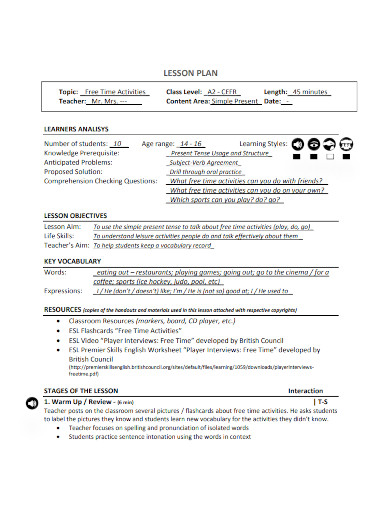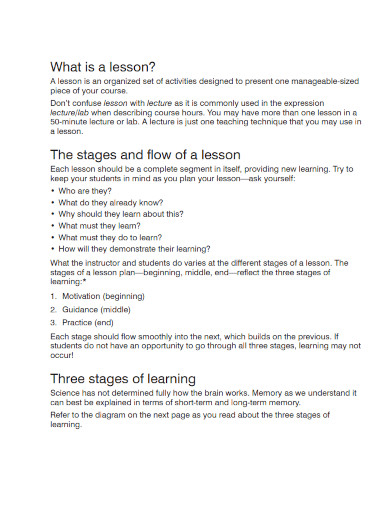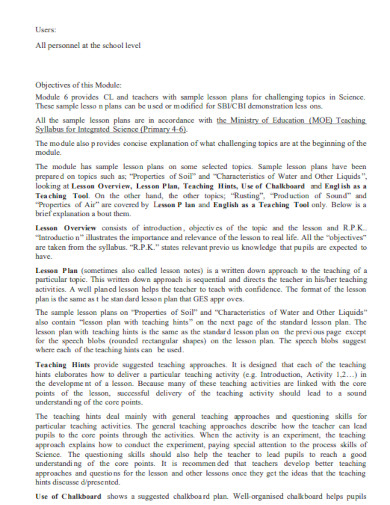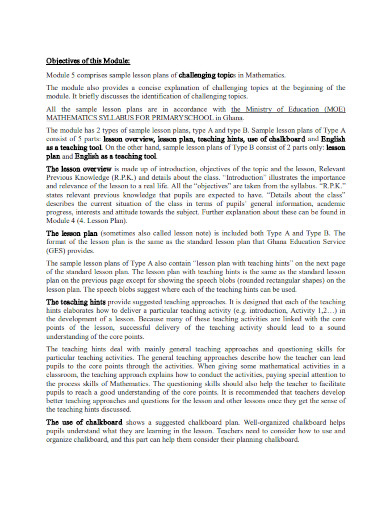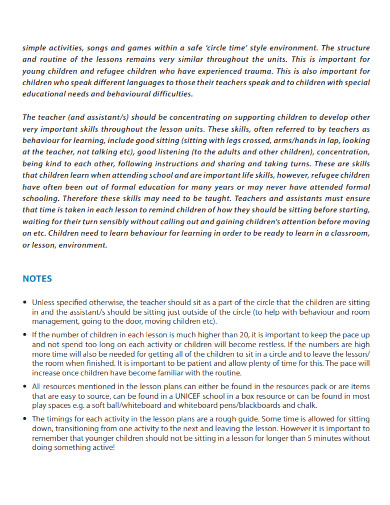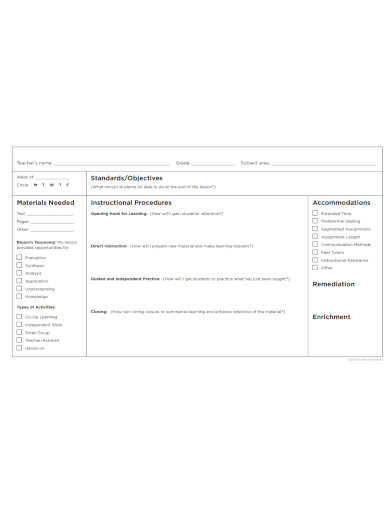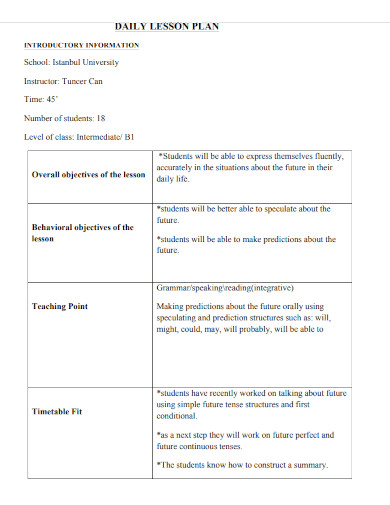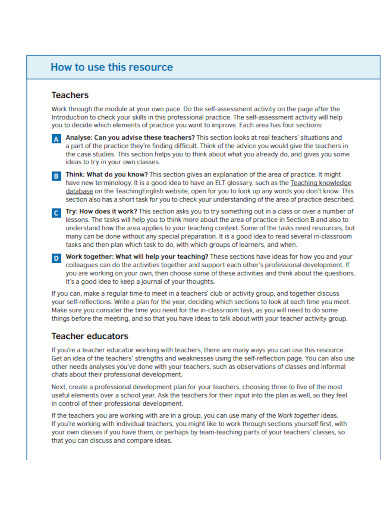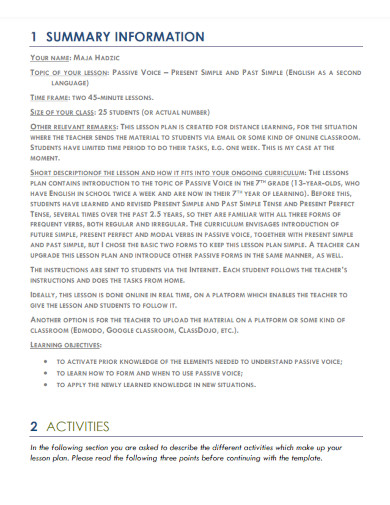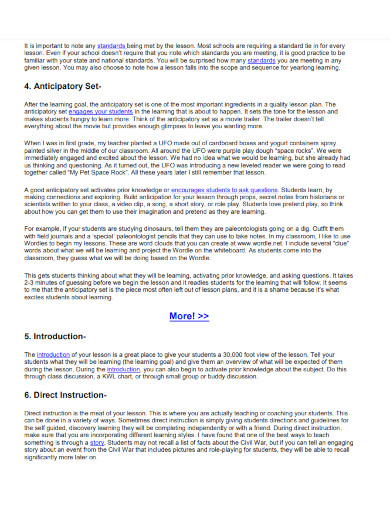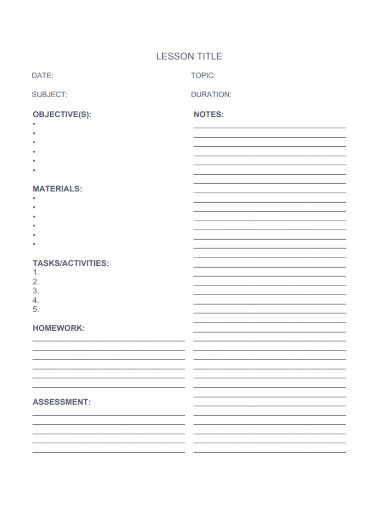A lesson plan prepares you for class by providing a detailed summary of the activities that will take place during the day. This benefit applies to any curriculum or topic you will be instructing. Your lesson plans don’t have to be very complicated or lengthy; all they need to do is include information pertinent to the subject you will be instructing. A simple lesson plan can establish an apparent rapport for an elementary lesson, primary school, or high school.
10+ Simple Lesson Plan Samples in PDF
1. Simple Lesson Plan Template
2. Simple Preparing Lesson Plans
3. Simple Lesson Plans in Science
4. Simple Lesson Plans in Mathematics
5. Simple Lesson PLan Example
6. Sample Simple Lesson Plan
7. Simple Daily Lesson Plan
8. Simple Lesson Planning and Courses
9. Simple Lesson Planning
10. 10 Steps to Better Simple Lesson Plans
11. Simple Lesson Plan for Elementary School
What Is a Lesson Plan?
A simple lesson plan can be a communication road map for the instructor that outlines what the students need to learn and how it will be efficiently accomplished during the time that they have in class. After that, you’ll be able to have an educational strategic plan and devise methods to collect feedback on your students’ learning progress. You can approach the classroom more confidently if you have a thoroughly constructed lesson plan for each of the three-hour lessons you will be teaching. You will increase the likelihood of having a meaningful learning experience and an action plan with your students.
How To Make a Lesson Plan?
In every single course, there will be aspects of the material that you cannot anticipate. However, if you are well prepared, it will be much simpler to adjust to unforeseen circumstances and respond appropriately to your students. This will allow you to teach more effectively. The following are some of the stages in developing a simple lesson plan.
1. Determine The Objectives
It is necessary to first determine the learning objectives for the session before you can move on to planning the lesson itself. Instead of focusing on what the student will be taught throughout teaching, learning objectives focus on what the student will be able to do or what they will have learned by the end of the learning experience, for instance, in making a physical education lesson.
2. Plan a Particular Activity
When organizing learning activities, you should consider the many sorts of activities that students will need to participate in to acquire the information and skills necessary to demonstrate that they have effectively learned the material presented in the course, especially in higher education lessons. The course’s learning objectives should be directly related to the activities used to teach them.
3. Plan The Student’s Assessment
Students can demonstrate and practice the knowledge and skills articulated in the learning objectives through assessments such as tests, papers, problem sets, and performances. At the same time, instructors have the opportunity to provide targeted feedback that can guide students in their continued learning. Besides, it can help track the students’ progression as well.
4. Present New Content
Use several instructional strategies, including traditional lectures, readings, activities, projects, multimedia, and others. Organize the knowledge in a logical sequence and divide it into chunks to prevent mental overload. Combine the data to make it easier to recollect the information afterward.
What exactly is meant by the term “simplified lesson plan”?
Beginning with the planning of your year, moving on to the planning of your month and weeks, and then moving on to the preparation of each individual day’s lessons requires a series of phases.
What are lesson plan examples?
A document that lays out the content of your class in a step-by-step format is referred to as a lesson plan.
What elements make up the framework of a lesson plan?
Traditionally, a lesson plan will include information regarding the lesson itself, the learning outcomes that will be addressed, the technique that will be utilized, the resources and materials that will be necessary, and the activities that will be carried.
Students will be more interested and on track, if you keep them informed about what they will be learning and doing in class and let them know what that will be. Students may not only be able to recall more information if the time in class is organized in a meaningful way, but they may also be able to follow your presentation and comprehend the reasoning behind the activities arranged for learning.
Related Posts
FREE 7+ Sample Common Core Lesson Plan Templates in Google ...
FREE 10+ Academic Lesson Plan Samples & Templates in MS ...
FREE 9+ Sample High School Lesson Plan Templates in PDF MS ...
FREE 10+ Trainer Lesson Plan Samples in MS Word Pages ...
FREE 10+ Curriculum Lesson Plan Samples & Templates in MS ...
FREE 10+ Sample Kindergarten Lesson Plan Templates in PDF ...
FREE 11+ Blank Lesson Plan Templates in PDF MS Word
FREE 14+ Sample Printable Lesson Plan Templates in PDF MS ...
FREE 10+ Music Lesson Plan Samples in MS Word PDF
FREE 18+ Special Education Lesson Plan Samples & Templates in ...
FREE 8+ Sample Art Lesson Plan Templates in PDF MS Word
FREE 10+ Sample Preschool Lesson Plan Templates in Google ...
FREE 11+ Sample Daily Lesson Plan Templates in PDF MS Word
FREE 8+ Sample Kindergarten Lesson Plan Templates in PDF MS ...
FREE 8+ Sample Lesson Plan Format in MS Word PDF

